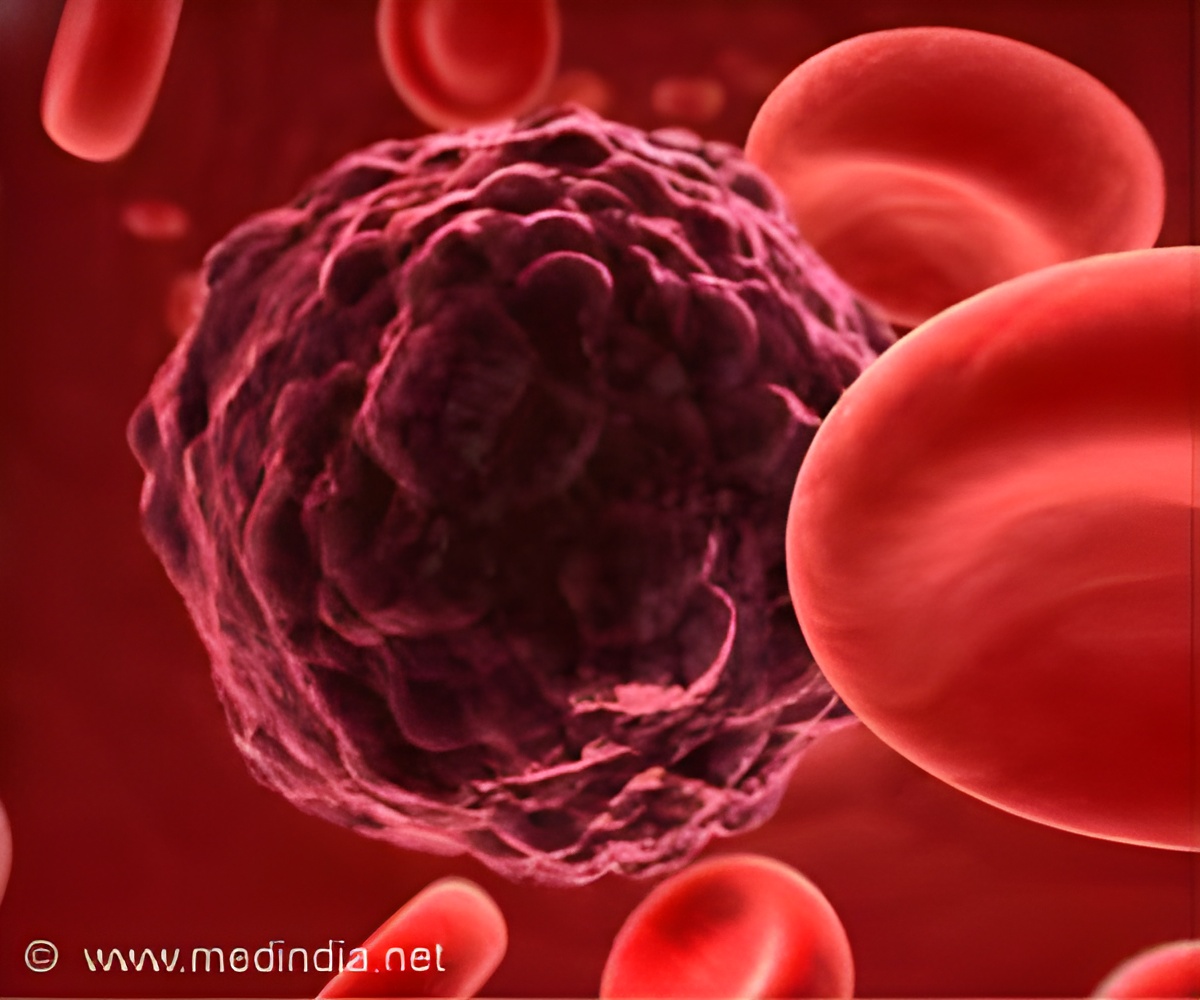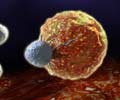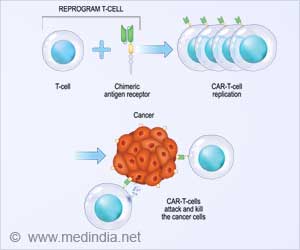Japanese researchers identified proteins to predict ICANS risk, enhancing CAR-T therapy safety by identifying high-risk patients pre-treatment.

Cerebrospinal fluid proteomics exerts predictive potential for immune effector cell-associated neurotoxicity syndrome (ICANS) in CAR-T cell therapy
Go to source). The study explores a potential way to predict life-threatening side effects of cancer immunotherapy before it occurs. By analyzing cerebrospinal fluid collected pre-treatment, researchers at Kyushu University identified these specific proteins. The study results are published in Leukemia on 11 March 2025.
This research could make immunotherapy cancer treatment safer by helping doctors identify high-risk patients and allow early treatment or prevention of this condition.
‘New biomarkers help predict ICANS risk in CAR-T therapy, enabling early intervention and safer #cancer treatment. #cfdna #medindia’





Advertisement
CAR-T Cell Therapy and Its Risk
Cancer immunotherapy is a promising treatment approach using the patient’s immune system to fight cancer. CAR-T-cell therapy uses genetic engineering to reprogram a patient’s immune cells (T cells) to target and destroy cancer cells. It has shown successful results in treating blood cancers but comes with serious risks, including immune effector cell-associated neurotoxicity syndrome (ICANS), which causes inflammation in the central nervous system.ICANS can have mild symptoms like headache or lethargy. In severe cases, it can be life-threatening, with patients experiencing impaired consciousness, seizures, or bleeding in the brain. The incidence rate of ICANS after CAR-T therapy is very high, around 64%. However, there is no reliable way to predict ICANS severity till now.
Advertisement
New Biomarkers Predicts ICANS Risk
The research team analyzed the proteins in leftover cerebrospinal fluid taken from 29 patients with B-cell non-Hodgkin’s lymphoma before they received CAR T therapy. Within that cohort, 11 patients developed ICANS while 18 patients did not.The research team identified 864 proteins present in all spinal fluid samples and identified 46 proteins different in patients with and without ICANS making them potential biomarkers for predicting the condition.
They found that C1RL, a protein with elevated levels in ICANS patients, and FUCA2, a protein with lower levels in ICANS patients. These were the best predictors. When looking at these proteins together, a predictive test determined their ratio had high accuracy in distinguishing patients at high risk of ICANS from those at low risk.
C1RL/FUCA2 as biomarkers were tested on a second group of 10 patients undergoing CAR-T therapy and found that for all patients, the protein ratio correctly determined the risk of developing ICANS. However, due to the small sample size, the study findings are not accurate and are still preliminary. A study with a larger number of patients is required to fully validate the results.
How Biomarkers Can Improve Cancer Treatment
The researchers hope that identifying key biomarkers can allow doctors to give preventive drugs before CAR-T therapy begins, reducing the risk of ICANS developing. For example, C1RL, which is elevated in ICANS patients, is involved in the complement system—a part of the immune system that is known to cause inflammation and may contribute to ICANS.The research also aims to test whether these biomarkers are accurate for patients with other blood cancers beyond B-cell non-Hodgkin’s lymphoma. They also wanted to explore if they could identify key biomarkers in blood serum.
Since spinal fluid collection is an invasive and painful procedure, many hospitals in Japan and other countries don’t perform it before CAR-T therapy often. Thus, identifying the biomarkers in blood is less invasive and the test could become a more accessible tool for predicting ICANS.
Reference:
- Cerebrospinal fluid proteomics exerts predictive potential for immune effector cell-associated neurotoxicity syndrome (ICANS) in CAR-T cell therapy - (https://www.nature.com/articles/s41375-025-02541-6)
Source-Medindia









